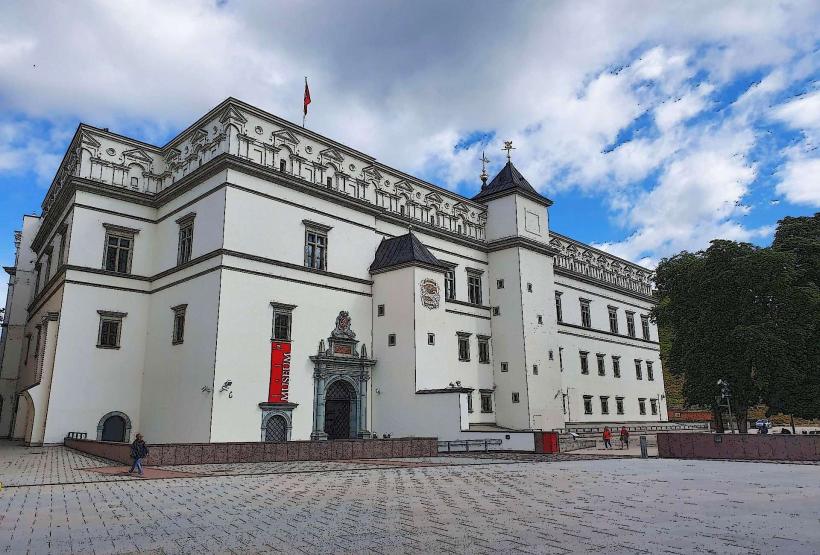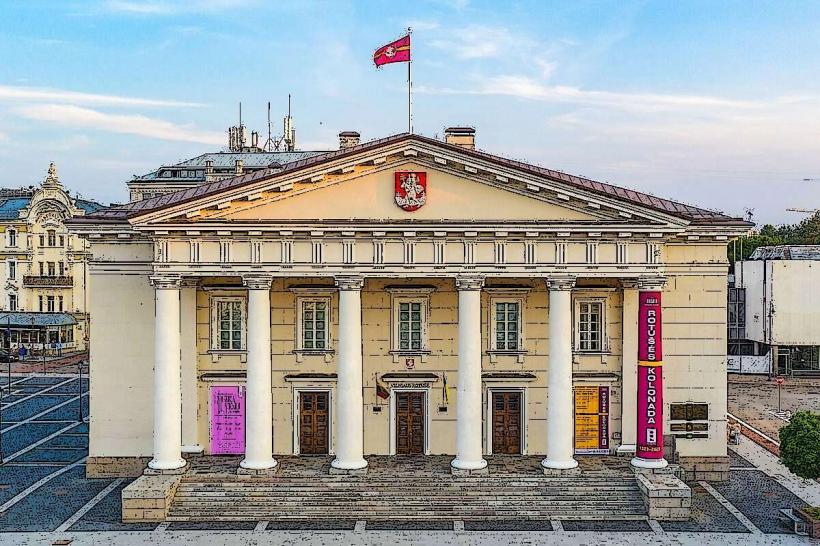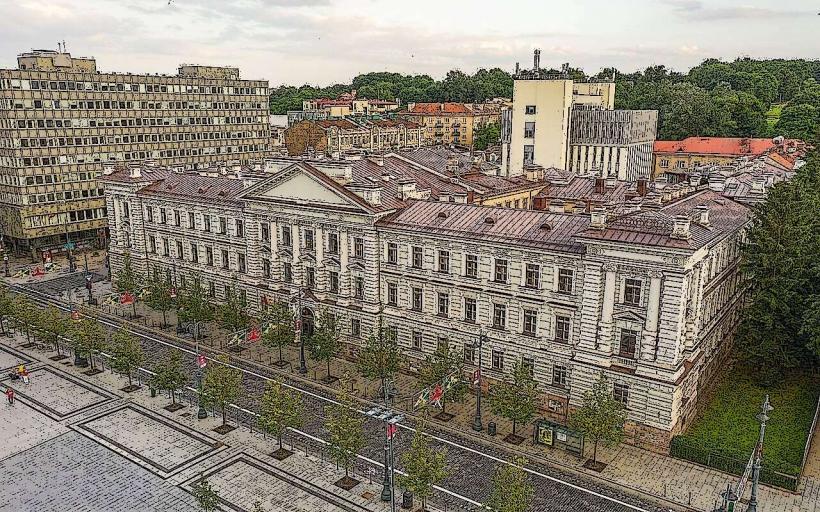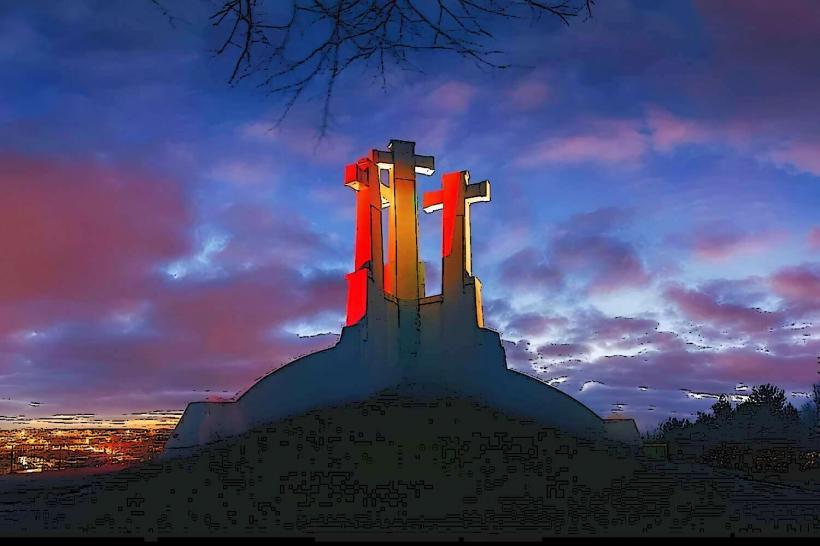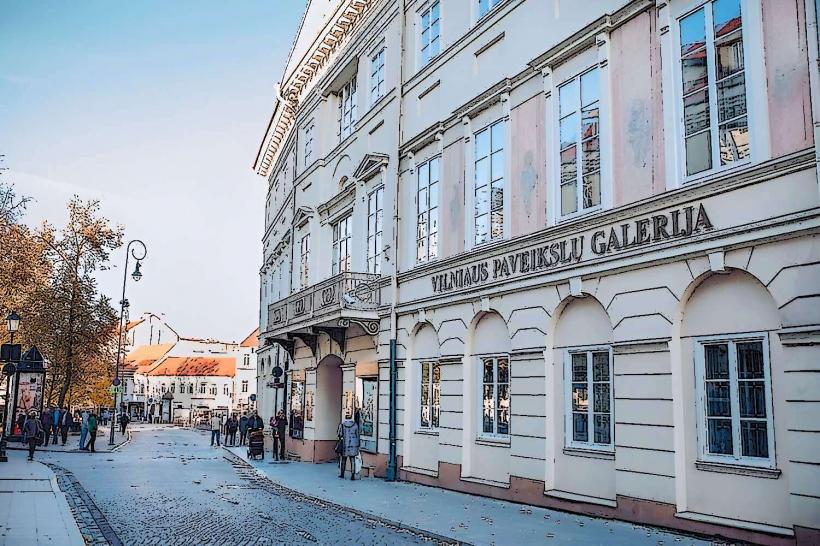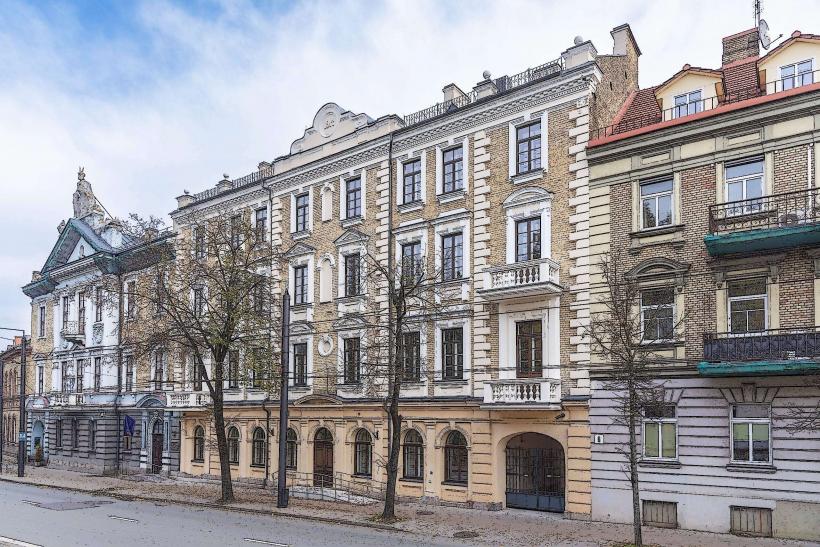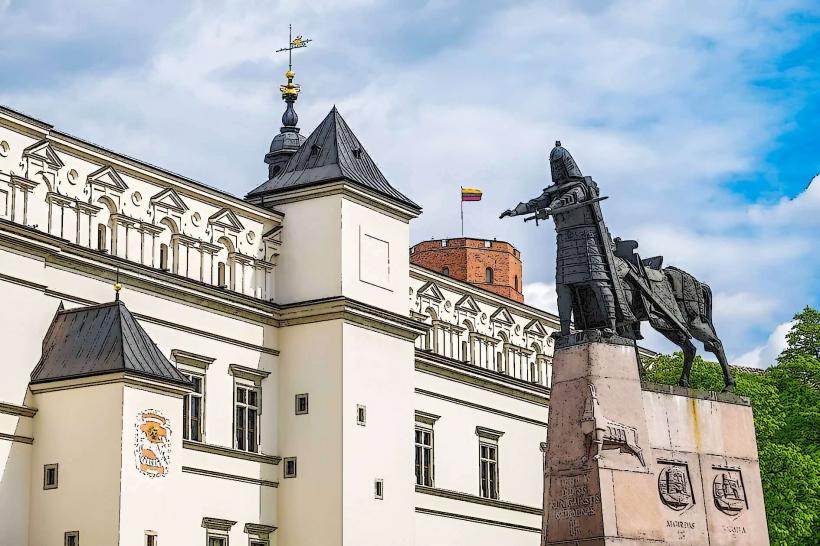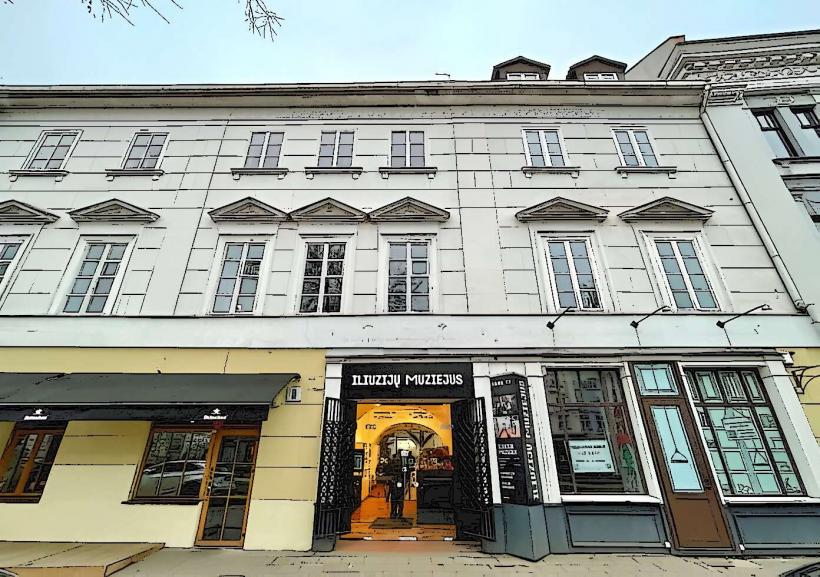Information
Landmark: Gediminas' TowerCity: Vilnius
Country: Lithuania
Continent: Europe
Gediminas' Tower (Gedimino pilies bokštas)
Gediminas' Tower is one of the most iconic landmarks in Vilnius, Lithuania. It stands as a symbol of the city's historical significance and its medieval past. Located on Castle Hill (Pilies kalnas), the tower offers panoramic views of Vilnius and is an essential stop for anyone interested in Lithuania’s history and culture.
Historical Background
Origin: The tower is the last remaining part of the original Vilnius Castle Complex, which was built in the 14th century under the reign of Grand Duke Gediminas, after whom the tower is named. Gediminas was one of the most important rulers of the Grand Duchy of Lithuania, and he is credited with founding the city of Vilnius. According to legend, Gediminas dreamed of a wolf howling on a hill, which led him to establish a fortress on the site.
Medieval Role: The tower was part of a larger defensive structure that included other castles, built to protect the Grand Duchy of Lithuania from external threats, particularly from the Teutonic Knights. The complex served as the residence of the Lithuanian princes and was a center of political life during the medieval period.
Destruction and Reconstruction: The original tower was damaged in the 17th century during wars with Russia and later suffered further destruction over time. It wasn’t until the early 20th century that the tower was partially restored. The current structure is largely the result of these 20th-century efforts.
Architecture
Gediminas' Tower is built in the Lithuanian Gothic style, characterized by its thick stone walls, narrow windows, and defensive features. The tower is relatively modest in height compared to many other castles in Europe, but its strategic location on Castle Hill makes it stand out in the cityscape of Vilnius.
Design: The tower has a circular shape with a red-brick exterior, and it is about 20 meters (66 feet) high. The top floor of the tower features a panoramic observation deck, which provides one of the best views of Vilnius and the surrounding area.
The Flag: A significant feature of the tower is the Lithuanian national flag that flies above it. The flag is an important symbol of Lithuanian independence and pride, and it is raised daily, except on days of national mourning.
The Tower and its Significance
Symbol of the Grand Duchy: Gediminas' Tower is a powerful symbol of Lithuania’s medieval heritage. It represents the strength and autonomy of the Grand Duchy of Lithuania, one of the largest and most powerful states in Europe during the Middle Ages. The tower and the castle complex were key to the defense of the Duchy against foreign invaders.
Political and Cultural Symbol: Over the centuries, the tower has come to represent the Lithuanian identity. It has been the subject of numerous artistic works and has played an important role in the collective memory of the Lithuanian people. During the struggle for independence in the 20th century, the tower became a rallying point for Lithuanians asserting their right to self-determination.
Gediminas' Tower Today
Museum: Today, Gediminas' Tower houses a museum that offers insights into the history of Vilnius and the Grand Duchy of Lithuania. The museum displays archaeological artifacts, historical exhibits, and information about the castle’s role in the defense of the city. One of the key attractions is the exhibit on the history of the Vilnius Castle Complex and its role in the development of the city.
Panoramic Views: Visitors who climb the tower are rewarded with breathtaking views of Vilnius. From the observation deck, you can see not only the Old Town but also the green expanses of the surrounding area, the Neris River, and the nearby hills.
Castle Hill: Gediminas' Tower is situated atop Castle Hill, which is part of a larger historical site that includes the remnants of the medieval Upper Castle. The hill itself is a popular spot for both tourists and locals, offering a chance to explore the history of the area and enjoy the views. The hill is accessible by a funicular railway, but many visitors choose to hike up to the tower.
Symbol of Independence: The tower has gained additional significance in the post-Soviet era. After Lithuania declared independence from the Soviet Union in 1990, the Gediminas' Tower was adopted as a symbol of national pride and independence. It serves as a reminder of Lithuania’s long struggle for sovereignty and freedom.
Visiting Gediminas' Tower
Location: Gediminas' Tower is located in the heart of Vilnius, just a short walk from Vilnius Old Town and Cathedral Square. The tower is part of the larger Vilnius Castle Complex, which also includes the Lower Castle and Palace of the Grand Dukes.
Hours and Entry: The tower is open to the public year-round, with varying hours depending on the season. There is an entry fee to visit the museum and climb to the top of the tower.
Activities: In addition to the museum and panoramic views, the tower often serves as a venue for cultural events and educational programs related to Lithuanian history.
Conclusion
Gediminas' Tower is one of the most important historical landmarks in Vilnius and Lithuania as a whole. It stands as a testament to the nation's rich medieval heritage and its enduring identity. With its stunning views, historical significance, and the connection to Lithuania’s past, the tower remains a must-see destination for visitors to Vilnius, offering a glimpse into the heart of the city’s history and the broader story of the Grand Duchy of Lithuania.



